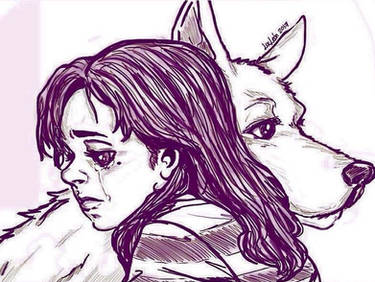Riding on a dejection train for two years without disembarking
People with dysthymia generally experience little or no joy in their lives. Things are rather gloomy most of the time. You may lose interest in normal daily activities, feel hopeless and have a low self-esteem. Those with dysthymia are often thought of as being critical, constantly complaining and incapable of having fun

Persistent depressive disorder (dysthymia) is a continuous long-term (for at least two years) form of depression. It causes one to lose interest in normal daily activities, feel hopeless, lack productivity, and have low self-esteem and an overall feeling of inadequacy. These feelings last for years and may significantly interfere with one’s relationships, school, work and daily activities.
If experiencing this condition, it is difficult and hard to be upbeat even on happy occasions. One can be described as having a gloomy personality, constantly complaining or incapable of having fun. Though persistent depressive disorder is not as severe as major depression, the depressed mood may be classified as mild, moderate or severe.
Since this condition is chronic in nature, coping with depression symptoms can be challenging, but a combination of talk therapy (psychotherapy) and medication can be effective in treating this condition.
Clinical presentation
Persistent depressive disorder symptoms usually come and go over a period of years, and their intensity can change over time. However, symptoms don’t disappear for more than two months at a time. In addition, major depression episodes may occur before or during persistent depressive disorder this is sometimes called double depression.
Symptoms of persistent depressive disorder can cause significant impairment in one’s daily life. The symptoms may include: loss of interest in daily activities, sadness, emptiness or feeling down, hopelessness, tiredness and lack of energy, low self-esteem, self-criticism or feeling incapable, trouble concentrating and trouble making decisions, irritability or excessive anger, decreased activity, effectiveness and productivity, avoidance of social activities, feelings of guilt and worries over the past, poor appetite or overeating and sleep problems. The set of symptoms is normally seen in adult population.
Furthermore, this condition can affect children as well. In children, symptoms of persistent depressive disorder may include depressed mood and irritability.
Causes of persistent depressive disorder
The exact cause of this condition is still unknown (idiopathic). As with major depression, it may involve more than one causal factor. Research has put forward different etiological factors that contributed to our understanding today. However, not a single factor is conclusive and absolute in determining the cause. The medical model has contributed much to our understanding as shown below.
Biological differences
People with persistent depressive disorder may have physical changes in their brains. The significance of these changes is still uncertain, but they may eventually help pinpoint causes.
Brain chemistry
Neurotransmitters are naturally occurring brain chemicals that likely play a role in depression. Recent research indicates that changes in the function and effect of these neurotransmitters and how they interact with neurocircuits involved in maintaining mood stability may play a significant role in depression and its treatment.
Inherited traits
Persistent depressive disorder appears to be more common in people whose blood relatives also have the condition. Researchers are trying to find genes that may be involved in causing depression.
Life events
As with major depression, traumatic events such as the loss of a loved one, financial problems or a high level of stress can trigger persistent depressive disorder in some people.
Risk factors
Persistent depressive disorder often begins early in childhood, the teen years or young adult life and is chronic. Certain factors appear to increase the risk of developing or triggering persistent depressive disorder, including:
- Having a first-degree relative with major depressive disorder or other depressive disorders
- Traumatic or stressful life events, such as the loss of a loved one or financial problems
- Personality traits that include negativity, such as low self-esteem and being too dependent, self-critical or pessimistic
- History of other mental health disorders, such as a personality disorder
Complications
The condition is not without complications. Majority of people fail to identify that they need help due to personal, religious, service-related factors and many other factors that may hinder help seeking behaviour. If left untreated, persistent depressive disorder may result into reduced quality of life, major depression, anxiety disorders and other mood disorders, substance abuse as a way of coping, relationship difficulties and family conflicts, school and work problems and decreased productivity, chronic pain and general medical illnesses, suicidal thoughts or behavior, personality disorders or other mental health disorders.
Since the symptoms are there for such a long time, it’s possible to think that they are normal part of life. However, if you have any symptoms of persistent depressive disorder, seek professional help from your primary care doctor who may refer you to a mental health professional. Majority of people don’t seek mental health assistance due to stigma associated with mental health issues. If you think you may hurt yourself or attempt suicide, quickly confide in anyone in your social support system to facilitate in contacting nearest help. One can contact the nearest clinic or health service delivery centre. Suicide ideation is an emergency that should be taken seriously.
Prevention
There is no one way to prevent persistent depressive disorder. As highlighted earlier, it often starts in childhood or during the teenage years, identifying children at risk of the condition may help them get early treatment. A wide range of strategies can be used to prevent the condition are at everyone’s disposal at almost zero cost.
- Take steps to control stress, to increase your resilience and to boost your self-esteem.
- Reach out to family and friends, especially in times of crisis, to help you weather rough spells.
- Get treatment at the earliest sign of a problem to help prevent symptoms from worsening.
- Consider getting long-term maintenance treatment to help prevent a relapse of symptoms.

Written by E. Maziti, a Great Zimbabwe University Lecturer and a registered practicing Clinical Psychologist, writing on his behalf.

Leave a Reply